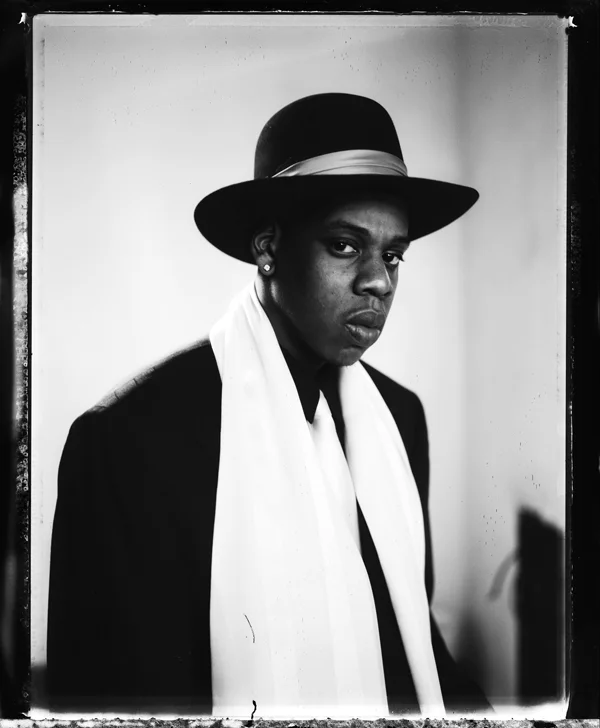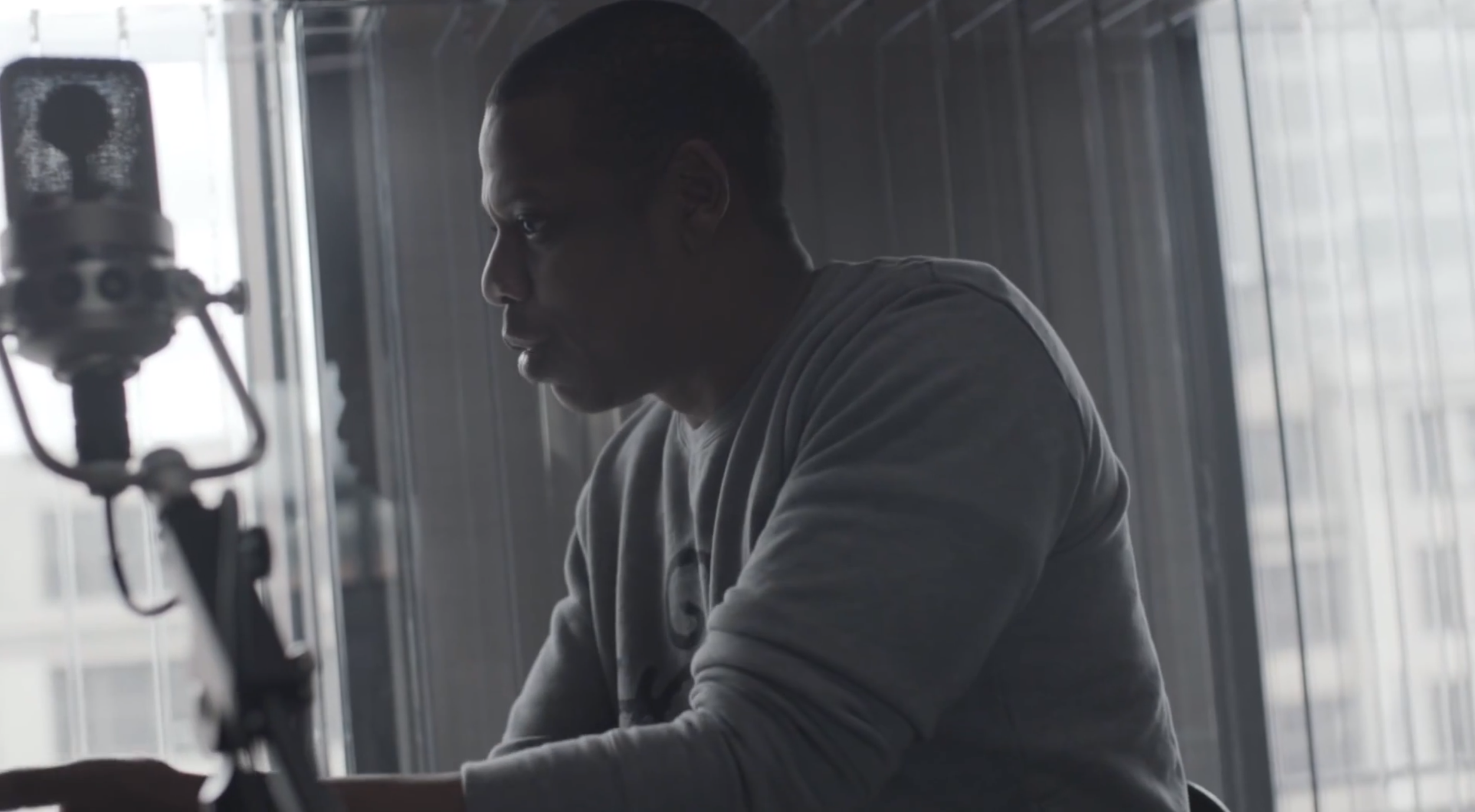Jay-Z has been my favorite rapper since the summer of 2006. Today, December 4th, is his birthday.
I almost mentioned, in my JG20 blog post, that I remember one summer Saturday morning waking up early to download "Izzo (H.O.V.A.)" The year was 2001, and while "Izzo" was my favorite song of that summer, Jay-Z to me was another one of the big name rappers— albeit one of the better ones. I had "The Blueprint" through "The Black Album," watched 'Fade to Black' and all (and who can forget his 2005 verses on "Go Crazy" and "Diamonds (Remix)"), but I never considered him one of my favorite rappers. I was still discovering my taste, and pre '06 I was in into Wu-Tang, Nas and the like. (In retrospect, he probably was my favorite rapper all along, as "Guess Who's Back?" - as 2002 song - somehow made it onto my custom fall 2005 playlist.)
Jay-Z, 1996. via DJ Booth.
In the summer of 2006, I was 15, and I heard "Dead Presidents II" for the first time. I matured late, and while I was still coming of age, this Jay had a confidence that I found drawing. I distinctly remember these moments: I was sitting in my room on a Monday morning before my summer job, and I had just downloaded "Dead Presidents II" and was amazed. I must have listened to that song at least 25 times that week. By the end of the fall, I was well-versed in his debut album, 1996's 'Reasonable Doubt,' and Jay was firmly my favorite rapper. That album played in my head like a movie, and every verse hit me with cinematic wonder. I was excited for his return with "Kingdom Come", and bought the CD the day it came out that November.
Jay remained my favorite rapper through college — his "Put On (Remix)" verse the fall of my freshman year, his 'Blueprint 3'-Yankees World Series-winning era in 2009, his guest verses for Kanye West in 2010, and his lyrical resurgence on 2011's 'Watch The Throne.' When I started working full-time, too, his catalogue stayed with me - 2013's "Somewhereinamerica" remains one of my favorite songs.
Looking back, this all feels a bit humorous — how seriously I (we) took these labels and our tastes. But the music spoke to that younger me, so to the disown that impressionable teenager and college student's fanhood would be to disown a part of myself.
As I've lived through my 20s, and further developed my taste in film while being much less involved and interested in new music, Jay-Z has still shined through as an aspirational figure. His sense of self-worth and confidence. His desire for ownership. His independence. His wit. His drive. His growth.
That takes us to '4:44', my favorite Jay Z album. It was easy, at age 17, to be attracted to an album like 'American Gangster' ("I want the sky, the world when I'm done") - the suits, the persona, the hustler. That image has propelled Jay Z as the confident, cool MC throughout his career. But that mystique and persona has overshadowed distasteful lyrical moments that both we, as his fans, and him, as the writer, have to face.
We were quick to dismiss those more distasteful lyrics as tools to sell records. But they were more than that, and Jay Z begins to unpack their source on '4:44.'
Look at this moment from his recent New York Times interview:
via the New York Times.
BAQUET: What was that like, being in therapy? What did you talk about that you had never acknowledged to yourself or talked about?
JAY-Z: I grew so much from the experience. But I think the most important thing I got is that everything is connected. Every emotion is connected and it comes from somewhere. And just being aware of it. Being aware of it in everyday life puts you at such a ... you're at such an advantage.
You know, you realize that if someone's racist toward you, it ain't about you. It's about their upbringing and what happened to them, and how that led them to this point. You know, most bullies bully. It just happen. Oh, you got bullied as a kid so you trying to bully me. I understand.
And once I understand that, instead of reacting to that with anger, I can provide a softer landing and maybe, “Aw, man, is you O.K.?” I was just saying there was a lot of fights in our neighborhood that started with “What you looking at? Why you looking at me? You looking at me?” And then you realize: “Oh, you think I see you. You’re in this space where you’re hurting, and you think I see you, so you don’t want me to look at you.
And you don’t want me to see you.”
[...] You have to survive. So you go into survival mode, and when you go into survival mode what happens? You shut down all emotions.
___
That is the raison d'etre of '4:44' — exposing your inner self in order to heal it.
That same teenage or youthful angst that drove me, or anyone, to a certain kind of Jay Z, is the same angst that led him to create certain kinds of music in the first place. A shell. Protection. Bravado.
Jay-Z in studio. Via Forbes.
Though we've seen glimpses before, '4:44' is the first time in Jay Z's career that we are seeing the real, total Shawn Carter. Exposed. Honest. Real. All his lyrical wit, his flow, his cadences, his brilliance — all of these tools are directed toward Jay's mature reflections on life, business, relationships and art.
Not that the old music wasn't good (much of it was great), or the confidence wasn't real, but, at certain point - and Jay unearths this fact through the album - we learn that our pain, whatever that may be, leads us to build up walls in the way we present ourself to the world. "4:44" breaks down those walls. And we all step through the rubble, together, ready to move forward.
- JG
"We know the pain is real, but you can't heal what you don't reveal"



